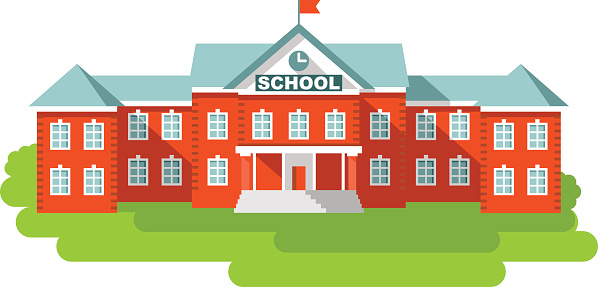Explore the Obstacles Facing Our Community: Save Temecula Schools
Explore the Obstacles Facing Our Community: Save Temecula Schools
Blog Article
The Effect of Institution Environments on Academic Success and Personal Health
The design of academic rooms, including natural illumination and ergonomic furniture, can improve pupils' focus and comfort. How can institutions strategically improve these aspects to better support their trainees?
Physical Layout and Layout
How does the physical design and layout of a school effect academic success? The setup and aesthetic of an institution setting can substantially influence students' understanding end results. A well-designed school design advertises ease of motion, decreases distractions, and fosters a feeling of safety and security and belonging. As an example, large passages and clearly marked locations facilitate smooth transitions in between classes, decreasing lateness and disturbance. Additionally, purposefully positioned typical areas urge social communications, which are essential for emotional and social advancement.
Natural lighting and efficient air flow systems are essential in enhancing cognitive function and lowering absenteeism. Studies have revealed that class with sufficient all-natural light improve trainee concentration and reduce sensations of drowsiness. Additionally, ergonomic furnishings tailored to trainees' requirements can stop physical pain, enabling prolonged focus and interaction in academic activities.
Accessibility to exterior spaces and cosmetically pleasing environments additionally play a critical function - Save Temecula Schools. Eco-friendly spaces and well-kept institution grounds supply opportunities for exercise and psychological leisure, both of which are very important for preserving high degrees of scholastic performance. Basically, a thoughtfully made physical atmosphere can function as a catalyst for scholastic quality, cultivating an atmosphere that sustains both training and knowing
Classroom Atmosphere
A favorable classroom ambience is essential to achieving scholastic success. An environment that fosters a feeling of safety and security, inclusivity, and mutual regard motivates students to engage even more proactively in their learning procedures. The atmosphere of a class, including elements such as lighting, sound degrees, and seating plans, can dramatically affect student focus and inspiration. A well-ventilated, well-lit classroom with marginal disturbances can improve cognitive feature and minimize stress, thereby promoting better scholastic results.
Additionally, the classroom ambience ought to support a society of cooperation and open communication. They are extra most likely to involve deeply with the product and develop essential believing abilities when students feel comfy sharing their ideas and asking concerns. Peer interactions and group tasks can boost discovering by giving varied viewpoints and promoting synergy
Additionally, establishing constant regimens and clear expectations can create a structured setting that allows trainees to concentrate on their research studies. By reducing unpredictability and providing a predictable structure, pupils can much better manage their time and obligations. Inevitably, a positive class atmosphere not only improves academic efficiency however also adds to the total wellness of students, preparing them for future instructional and personal undertakings.
Teacher-Student Relationships
Building on the relevance of a positive class atmosphere, the relationships in between instructors and pupils play a crucial role fit scholastic success. A healthy and balanced teacher-student relationship cultivates a finding out environment where trainees feel valued, comprehended, and sustained, which significantly enhances their motivation and engagement. When pupils perceive their instructors as approachable and empathetic, they are more probable to take part actively in class and seek aid when required, adding to a much deeper understanding of the topic.

Effective communication is vital to nurturing these relationships. Teachers that utilize open, considerate, and constant interaction develop a foundation of trust. This count on makes it possible for pupils to express their problems and ideas freely, cultivating a collective understanding environment. Basically, solid teacher-student partnerships are a cornerstone of academic success, playing a crucial duty in both scholastic accomplishment and personal advancement.
Peer Interactions
Peer communications substantially influence scholastic success by shaping a trainee's social and cognitive development. Within the college environment, peer connections act as a foundational component for finding out and personal growth. Favorable peer communications can boost a trainee's motivation and engagement in academic tasks via joint discovering and shared assistance. When trainees work with each other in team settings, they exchange ideas, solve issues collectively, and develop important assuming abilities. Such interactions promote a sense of belonging and community, which is essential for emotional health and scholastic determination.

Effective peer interactions likewise add to the advancement of important life check out this site abilities, such as collaboration, communication, and dispute resolution. These social proficiencies are critical for both academic success and individual wellness, emphasizing the significance of fostering positive peer characteristics within the college environment.
Extracurricular Activities
Taking part in after-school activities plays an essential role in a pupil's academic success and individual advancement. These activities, varying from sports groups to debate clubs, provide pupils chances to refine beneficial skills such as management, time monitoring, and synergy. Research constantly shows that pupils who join after-school activities often tend to accomplish greater academic performance. This connection is usually credited to the organized atmosphere and the discipline required to stabilize both extracurricular and academic commitments.
Furthermore, extracurricular participation promotes a sense of belonging and community, which is vital for personal health. Joining team tasks allows students to develop and enhance social media networks, enhancing their psychological and social knowledge. These communications are important for developing social abilities that are useful in both future and scholastic expert atmospheres.
In addition, after-school activities offer try these out a useful electrical outlet for pupils to explore their interests and interests beyond the standard educational program. This expedition can bring about the discovery of new abilities and potential career paths, better motivating trainees to involve even more deeply in their academic job. To conclude, the function of after-school activities prolongs past plain recreation; they are essential to fostering an alternative instructional experience that advertises both scholastic success and personal development.
Conclusion
Altogether, the influence of school atmospheres on both scholastic success and individual wellness is profound. Thoughtfully created physical designs and classrooms, together with positive teacher-student connections and constructive peer communications, dramatically enhance pupil motivation and involvement. Moreover, the visibility of helpful instructors can minimize stress, promoting a nurturing ambience for all natural advancement. These components collectively underscore the significance of developing and maintaining optimal school atmospheres for the benefit of students' academic and individual growth.
Eventually, a favorable classroom environment not only improves academic efficiency but likewise contributes to the general health of students, preparing them for future educational and individual ventures.

Report this page